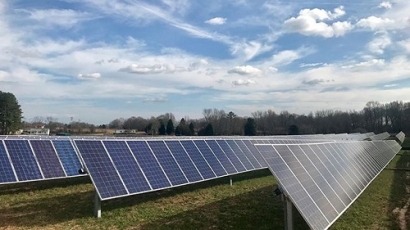
The Shared Solar Program is available to all qualified Duke Energy Carolinas residential and nonresidential customers including those who hold tax-exempt status, those who rent or live in multifamily housing, and those who may not otherwise have access to solar energy.
Customers who subscribe to solar energy through the Shared Solar Program will receive a monthly bill credit for the value of the energy produced by their subscription.
“This program is a great opportunity for any customers who are unable to put a solar facility on their property to access renewable energy,” said Kodwo Ghartey-Tagoe, state president for Duke Energy in South Carolina. “We estimate that a typical residential customer will be credited more than $200 per year from their Shared Solar subscription. Customers are not only saving on their electric bill, they are directly supporting a renewable energy future in South Carolina for generations to come.”
The program is powered by two new facilities in Anderson County – a 2 MW facility near Piedmont and a 1 MW facility in Pelzer – developed and owned by Soltage, an independent renewable power provider that develops, finances and operates solar and solar-plus-storage projects across the U.S.
To enroll, participants pay an application fee and a one-time charge to reserve their share of the solar plant.
Once accepted, the customer will begin seeing Shared Solar monthly credits based on solar production and a small monthly per kilowatt subscription fee on their bill to support operation of the Anderson County solar facilities.
For qualified low-income customers, Duke Energy Carolinas will waive the application cost and initial fees. Customers should contact their local community action agency for assistance determining eligibility.
The Shared Solar Program is a result of the historic collaborative effort in South Carolina to grow solar generation and give customers choices as to how they live their energy future.
Duke Energy Carolinas owns nuclear, coal, natural gas, renewables and hydroelectric generation. That diverse fuel mix provides approximately 19,600 MW of owned electric capacity to about 2.5 million customers in a 24,000-square-mile service area of North Carolina and South Carolina.

